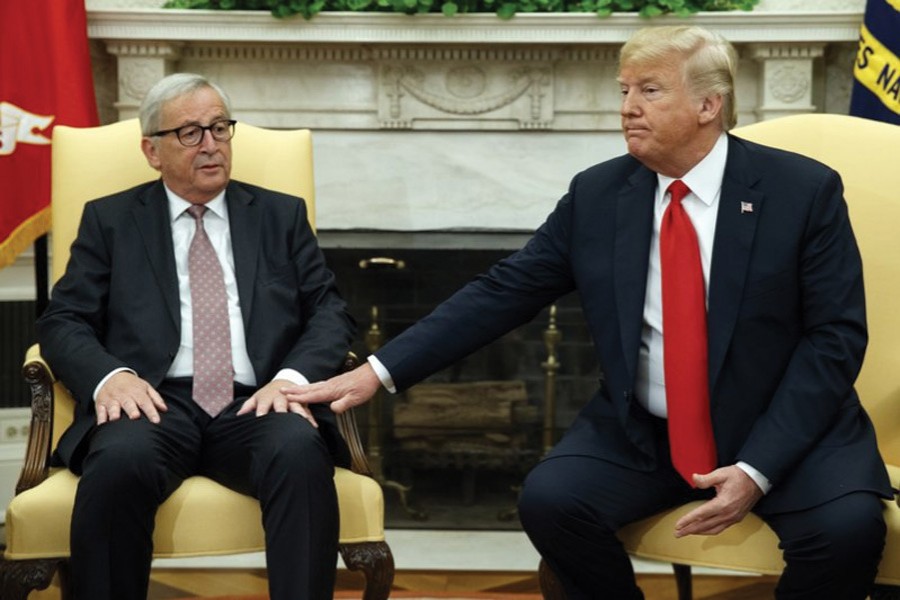
Published :
Updated :

When India won its freedom there were few industries to speak of save for those that churned out what the UK required and apart from the small businesses that grew to supply needs of the local populace. That was the extent of the outcome of the great Industrial Revolution in Europe. A general sense of nationalism made all the more sober by foreign currency crunch, imbibed India's strict control of imports and a greater focus on industrialisation.
Only when it felt ready did the political leadership agree to open up India's markets to products and, much later, services. With the potential to export and invest abroad the flagship industries waded in but it was just a matter of time before rather than being a manufacturing hub, India became an outsourcing hub. It survived competition from China on the West's political sensitivity related to hard and software. Today Apple sources most of its parts from China while many companies' toll-free call centres operate out of India. As collateral damage nascent industries in India have gone bust but the economy grows pivoted by huge middle-class demands.
As more service industries sprung up as opposed to rapid expansion in industry Prime Minister Narendra Modi pursued a look-East policy even at the risk of a wobble with Bangladesh related to the Rohingya issue. His more famed 'make in India' slogan received tacit support from the then US presidential candidate Donald Trump and it seemed a matter of time before his frequent US overtures were to yield dividends. Between then and now water has flowed down the Ganges. Nationalism is a great rallying cry but doesn't really fit in a globally connected economy.
So when Mr. Jeremy Corbyn starts to launch a 'buy British' campaign in the UK it is clear that the country needs to jack up domestic consumption versus overseas products. Streamlined trade over the years and relatively stable prices provided better consumer choices. In a post-Brexit scenario that will inexorably change.
At the end of the day even Mr. Donald Trump has had an unprecedented meeting with Jean Claude Juncker on trade issues that appear to be the first step towards backing down from a trade war. Mr. Trump wants non-subsidy and zero tariffs on non-industrial goods meaning pharmaceuticals and farm produce. This brings its own dangers. The US and the European Union (EU) have for many years subsidised farmers including encouraging them not to sow more than required crops. This includes tobacco and grains and which are mostly the domains of the Republicans. The EU has balanced out similar strategies from the vineyards of France all the way across its membership. These will exacerbate the Brexit debate because if there are zero tariffs with the EU, Britain is likely to be left out. And so the same Mr. Trump who advised Theresa May to sue the EU, is inching towards an agreement rather than the courts. In so doing he is addressing one of his election pledges, that of the US getting the raw side of trade deals. As it stands, there is a roughly $ 140 billion trade deficit in favour of the EU and Mr. Trump wants Europe to buy more or face retaliatory tariffs i.e, on steel, aluminium and cars. European cars could therefore become around $ 10,000 more expensive. As we all know the inability to buy new cars is a general reflection of the state of the US economy with food prices amongst the cheapest in the world as per buying parity. How the EU will handle it isn't too difficult to figure out. Their buying from UK will be diverted as will the vehicles BMW, Volkswagen and others churn out. Competition, that essentially exciting element of business now begins to hurt as the fittest seek to survive.
mahmudrahman@gmail.com


 For all latest news, follow The Financial Express Google News channel.
For all latest news, follow The Financial Express Google News channel.